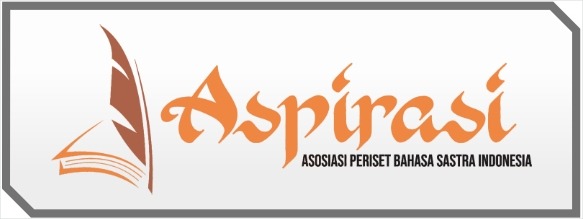Read and Understand: How a Simple Strategy Transforms Pupils’ Reading Skills
DOI:
https://doi.org/10.61994/jee.v3i1.1118Keywords:
learning experiences , READ strategy , reading comprehensionAbstract
This research examined the effectiveness of the READ (Read, Examine, Analyze, and Deliver) strategy in enhancing reading comprehension among Grade IV pupils. A total of 45 participants were purposively selected from Caraitan Integrated School, Nagrebcan Elementary School, Mariano Marcos Memorial Elementary School, and Garnaden Elementary School in Ilocos Norte, Philippines, based on their low pre-assessment scores. The primary objectives were to assess pupils’ reading comprehension levels through a pretest and to explore their learning experiences and improvements after the strategy’s implementation. A mixed-methods research design was employed. Quantitative data were collected from pretest and posttest results and analyzed using descriptive statistics. Qualitative data, obtained from interviews and pupils’ journals, were analyzed thematically. The findings indicated a marked improvement in reading comprehension of English stories following the application of the READ strategy. The posttest mean score (13.64) substantially exceeded the pretest mean score (5.80), resulting in a significant mean difference of 7.84. Thematic analysis revealed key insights into pupils’ learning experiences, highlighting increased engagement, improved comprehension skills, and greater reading confidence. Pupils reported that the strategy’s structured, step-by-step process facilitated deeper understanding of texts and fostered active participation in reading activities. In conclusion, the READ strategy proved to be a highly effective pedagogical approach for improving reading comprehension among elementary pupils, particularly those with initially low proficiency levels. The integration of quantitative gains and qualitative feedback underscores its potential applicability in broader educational contexts to promote literacy development in primary education.
References
Adinugraha, D. W., Arifani, Y., & Assassi, T. (2024). Examining the correlation between intrinsic reading motivation on reading skills improvement. https://doi.org/10.30587/inatesol.v1i2.8875
Almutairi, N.R. (2018). Effective Reading Strategies for Increasing the Reading Comprehension Level of Third-Grade Students with Learning Disabilities. Western Michigan University. https://scholarworks.wmich.edu/dissertations/3247
Amalia, D. (2022). The Importance of Sight Word Recognition to Improve Reading Fluency. Journal of English Language and Pedagogy. https://doi.org/10.58518/jelp.v1i2.978
Amiruddin, Bahri, S., B., Fajriyani, M., & Hartawan, M. (2022). The Role of Independent Reading on Reading Comprehension in the Second Year Students of MT’s As’ Adiyah Putra 1 Sengkang. Indonesian Journal of Research and Educational Review, 1(3). https://etdci.org/journal/ijrer/article/view/384
Banditvilai, C. (2020). The Effectiveness of Reading Strategies on Reading Comprehension. International Journal of Social Science and Humanities, 10 (2), https://www.ijssh.org/vol10/1012-CH06.pdf
Borabo, H. G. L. & Borabo, M. L. (2015). Interactive and innovative teaching strategies. Vol. 6. Lorimar Publishing, Inc.
Brandon, D. (2021, March 26). The importance of reading comprehension. Alabama Cooperative Extension System. https://www.aces.edu/blog/topics/home-familyurban/the-importance-of-reading-comprehension/
Braun, V., & Clarke, V. (2021). Thematic Analysis: A Practical Guide. Sage. https://doi.org/10.1007/978-3-319-69909-7_3470-2
Caraig, R. & Quimbo, M.A. Assessing reading comprehension difficulties in core science subjects of senior high school students in a private school in Calamba City, Philippines. International Journal of Curriculum and Instruction, 14(3). https://files.eric.ed.gov/fulltext/EJ1364296.pdf
Chen, Q., Lei, Y., Wen, Z., Li, S., Li, J., & Kong, Y. (2019). Teacher Support, Reading Strategy and Reading Literacy: A Two-Level Mediation Model. Best Evidence of Chinese Education, 2(1), 157–170. https://bonoi.org/index.php/bece/article/ view/65/48
Cicerchia, M. & Freeman, C. (2020). Reading Problem. Read and Spell Blog. https://www.readandspell.com/common-reading-problems
Creswell, J. W., & Creswell, J. D. (2023). Research Design: Qualitative, Quantitative, and Mixed Methods Approaches (6th ed.). SAGE Publications.
King, R. B., & Cai, Y. (2023). Gratitude is its own reward: how grateful students have better motivation and engagement. Educational Psychology, 43(4), 284–303. https://doi.org/10.1080/01443410.2023.2205069
Kurniaman, O., Zufriady, Z., Mulyani, E. A., & Simulyasih, N. S. B. (2018). Reading comprehension skill using graphic organizer for elementary school students. Journal of Teaching and Learning in Elementary Education (JTLEE), 1(2), 75–80.
Loi, N. V., & Thanh, D. T. K. (2022). Engaging EFL Learners in Reading: A Text-Driven Approach to Improve Reading Performance. TESL-EJ, 26(4). https://doi.org/10.55593/ej.26102a5
Lu, P., Schroeder, S. C., Burris, S., Rayfield, J., & Baker, M. (2022). The Effectiveness of a Metacognitive Strategy during the Reading Process on Cognitive Allocation and Subject Matter Retention. Journal of Agricultural Education, 63(2), 201–218. https://doi.org/10.5032/jae.2022.02201
Manurung, S., Ariyanti, A., Yana, D., Sinaga, J. B., & Adam, A. (2024). The Correlation between Reading Strategies and Reading Comprehension. JCP (Jurnal Cahaya Pendidikan) Fakultas Keguruan Dan Ilmu Pendidikan. https://doi.org/10.33373/chypend.v9i2.5975
Mc-Bride, J.P. (2017). The effects of choice on reading engagement and comprehension for second-and third-grade students: An action research report. Journal of Montessori Research, 3 (2), 19-38. https://files.eric.ed.gov/fulltext/EJ1161358.pdf
Medieta, J., Munera, L., Olmos, T., Onatra, C., Perez, P., & Rojas, E., (2015). Fostering reading comprehension and self-directed learning in a collaborative strategic reading (CSR) setting. Íkala, Revista de Lenguaje y Cultura, 20 (1), 15-42. https://doi.org/10.17533/udea.ikala.v20n1a02
OECD. (2019). Programme for international student assessment (PISA) results from PISA 2018. https://www.oecd.org/pisa/publications/PISA2018_CN_PHL.pdf
Ongpin, M. I. (2022) Reading with Comprehension. The Manila Times. https://www.manilatimes.net/2022/08/19/opinion/columns/reading-with-comprehension/1855175
Paige, D. (2020). Reading Fluency: A Brief History, the Importance of Supporting Processes, and the Role of Assessment. Northern Illinois University. https://files.eric.ed.gov/fulltext/ED607625.pdf
Papatga, E. and Ersoy, A. (2016). Improving reading comprehension skills through the SCRATCH program. International Electronic Journal of Elementary Education, 9(1), 124-150. https://files.eric.ed.gov/fulltext/EJ1126664.pdf
Ponce de Leon, I. (2022). Comprehending Comprehension. Inquirer.net. https://opinion.inquirer.net/154516/comprehending-comprehension
Rasonable, R. T., & Velasco, C. Q. (2023). Teaching Strategies and the Reading Comprehension Competence of Grade 7 Students. International Journal of Social Science Humanity & Management Research, 2(08). https://doi.org/10.58806/ijsshmr.2023.v2i8n02
Servallos, N. J. (2023, December 6). Student assessment: Philippines still in bottom 10. Philstar Global (the Philippine Star). https://www.philstar.com/headlines/2023 /12/06/2316752/student-assessment-philippines-still-bottom-10
Shea, M. & Ceprano, M. (2019). Reading with understanding: A global expectation. Journal of Inquiry & Action in Education, 9(1), 48-68. https://eric.ed.gov/?id=EJ1158259
Yucheng Cao, Y. & Kim, Y. (2021). Is retell a valid measure of reading comprehension? Educational Research Review, Vol. 32. https://doi.org/10.1016/j.edurev.2020.100375
Zila, F. A., & Septiana, A. R. (2024). Student’s Reading Comprehension as Related to Strategies Used in Reading. Jurnal Arjuna, 2(4), 220–228. https://doi.org/10.61132/arjuna.v2i4.1107
Downloads
Published
Issue
Section
License
Copyright (c) 2025 Ma. Arabella Avril I. Cabiera, Jesus O. Aurellano, Hashlyn Joy T. Bacnat, Florence D. Cacuyong, Christine Mae D. Palaspas, Madeline Fernando

This work is licensed under a Creative Commons Attribution-ShareAlike 4.0 International License.

Journal of English Education by https://jurnal.dokicti.org/index.php/JCSS/index
is licensed under a Creative Commons Attribution-ShareAlike 4.0 International Licensel
















